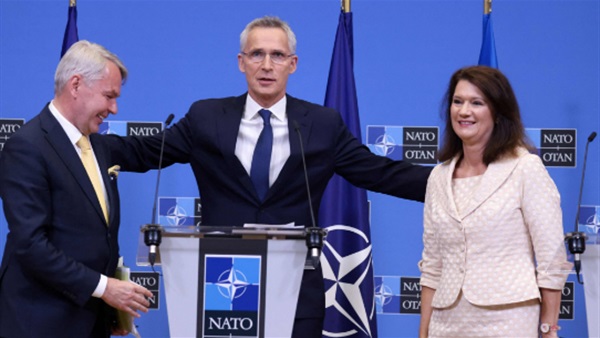Nato Suggests Finland and Sweden Could Join Alliance Separately as Turkey Blocks Joint Membership Bid

Nato has openly acknowledged that Finland and Sweden could
potentially join the military alliance separately, marking a significant shift
in the organization’s official stance. Previously, Nato had insisted that the
two Nordic countries should join as a pair, but Turkey's dispute with Stockholm
has put this on hold. The Turkish President, Recep Tayyip Erdoğan, has
indicated that he would ratify Finland's Nato membership but not Sweden's,
accusing Stockholm of harbouring Kurdish activists and allowing a Koran to be
burnt in front of Turkey's embassy in the Swedish capital.
In response to the ongoing dispute, Nato officials are now
willing to allow Helsinki to proceed with its application without Sweden. “The
main question is that they are both ratified as full members as soon as
possible. And I’m confident that both will be full members, and are working
hard to get both ratified as soon as possible," said Nato
Secretary-General Jens Stoltenberg. Both countries are in a better security
position than they were before Russia's full-scale invasion of Ukraine almost a
year ago.
While senior Finnish officials have publicly committed
themselves to joining with Sweden, they acknowledge that it would be
unthinkable for Finland to refuse Nato membership if Turkey only ratifies
Helsinki's application. With a 1300km long border with Russia, the longest of
any EU country, Nato diplomats consider it critical that Finland be admitted to
the alliance as soon as possible, even if it means leaving Sweden behind.
The US officials have expressed hope that both Finland and
Sweden will join Nato by the time leaders meet in Vilnius before the summer, if
not before. They are less concerned about the exact sequencing of the
countries' admission to the alliance. "We're not so much focused on who
goes when or how, that's really up to those countries. But we are very focused
on making this happen as soon as possible," said a senior administration
official.
In conclusion, this development represents a significant
change in the diplomatic landscape of the region, and a reflection of Turkey's
increasing assertiveness on the global stage. As Nato officials and member
countries seek to navigate this new reality, the implications for the security
and stability of the region remain to be seen.







